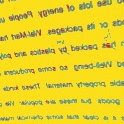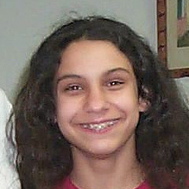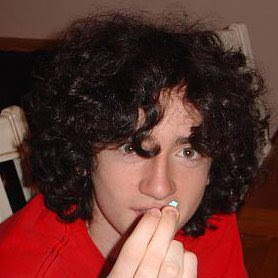About Korea & beyond
My long-time colleague
Lynne Davis has published an article in the same publication that I've enjoyed some success in:
Davis, L. (2006).
Enjoying the ride in Korea. Global Study Magazine Online.
http://www.globalstudymagazine.com/site/articles/267/.
This article is about picking up language at first - and it really hits home, because I'm writing about many of the same things.
In fact my new project, alluded to in earlier posts, is now online:
http://www.siu.edu/~cesl/z/sos/intro.html but it's very much in progress - actually closer to "just started"...a much better picture of what the project might look like would be in the things I've already written in
this weblog to date.
notes from around and about
-I may have to move the CESL chat...more on that soon.
-My
new core class is very lively. My
new writing class is doing the Arctic. Different from Wal-Mart, anyway!
-My wallet came back to me, from Tampa, untouched. It's a great world, even Florida.
-I"m almost finished with
CESL Today volume 64...just a few pictures to go!
-a new project in the works...using all these traffic pictures! But I've been forgetting to credit them...and even lost the photographer of the one immediately below.
-Here's an article that was just recently published:
Leverett, T. (2006).
High heels on a rocky path. Global Study Magazine Online.
http://www.globalstudymagazine.com/site/articles/260/
look for the "memphis" sign

models for language change
The history of linguistics has suffered from the dilemma that while we are reasonably certain that the construction of language and language change follow scientific principles, we can also see that they are so thoroughly human, so thoroughly entwined with the cultures and peoples that they serve, that it is hard to see the principles at work or even find the appropriate models that can be used to explain them. Chomsky's idea that there are genetic language universals was appealing in that we can intuitively sense that there are
some universals out there; yet the wild goose chase that followed and lasted many years failed to turn up
anything in the way of universal restrictions that came down from our genetic code.
I feel that the best model for understanding language construction and language change come from the world of physics, specifically the concepts of
self-organizing systems and
emergence, which are commonly used to describe diverse phenomena in nature ranging from traffic jams to termites, ants, flocking birds, and herds of animals - also, the immune system, the free market, the brain, evolution, etc. People who working on simulation games like Sim City noticed first that when trying to make a system that best emulates life it is better to start by programming the individuals within them, since they are basically decentralized systems where the actions of each individual collectively create the larger patterns. Traffic is an example: you can make laws, you can get on the radio and proclaim the Dan Ryan bottled up, but it's the actions of the individual drivers, each acting for their own benefit, that create the patterns we know as traffic jams.
So I found a book, referred to below, which gives some of the background for these decentralized systems and how they can be described. Resnick gives several principles that will be useful to me in proving this, but a few of them are below:
1. People tend to see top-down organization even when there isn't one. For example, they explain traffic jams by saying, there must have been an accident, or, somebody must have messed up, up there. Resnick calls these "lead" or "seed" explanations. Either someone did it, or something started it. But his point is, sometimes they happen by themselves: it's the very randomness of the actions of the cars, for example, that make it possible for traffic jams to start.
2. Critical density is an important concept in understanding these systems. Resnick did an experiment in which he put virtual trees at certain densities in an area, then tried to determine whether a forest fire would envelope the entire area, given certain densities. Sure enough, there was a point at which the probability increased considerably: this could be called the critical density. Such a concept is obviously important in our understanding of language. If 70% of the people my boys talk to use "soda" to refer to sweet sticky worthless drinks, then that's what they'll call them, regardless of what I tell them. Critical density has determined the "accent" of this area. More on this later, obviously.
3. The actors in a given situation can change, when the situation itself remains. For example, in a given traffic jam, new cars are entering, and others are leaving, but the traffic jam remains.
4. There is often confusion about levels. The cars are going forward, but the traffic jam is going backward. So don't the cars run into the traffic jam? No, cars run into cars. Cars enter traffic jams. The cars and their drivers create the patterns. The jams are the patterns themselves, and exhibit behavior themselves, but
are not guided by centralized authority and
are not the same as the cars.
Here is the book which I will quote a little soon:
Resnick, M. (1994). Turtles, termites, and traffic jams: explorations in massively parallel microworlds. Massachusetts Institute of Technology Press, Cambridge, MA.
Here is some other stuff:
language as self-organizing system (3-07)
connectivism (tangentally related)
abe day blizzard: index of language-related writing
self-organizing systems (wikipedia)
emergence (wikipedia)
TESOL report
Returned from Tampa, and can say several things, besides, boy is there a lot of sun down there.
1. four presentations went well; blogs are big, and most
TESOL people don't even know what a podcast is, let alone mention it. I almost ran out of my big handout before I even gave my presentation, and all my handouts disappeared fast. Blogs were being talked about and presented a lot, BUT
2.
TESOL seems to be more k-12 than usual, and k-12 institutions are "locked down," in terms of the web, unable to see much of blogger or really dig around the web to get enough information. I was not able to figure out exactly what way they
would be able to use blogs, though someone asked me. All I could say is, I have trouble even imagining that.
3. I promised to
try to write for
Essential Teacher and to
consider putting myself up for TESOL Nominating Committee. We'll see if either happens.
4. Saw old friends, Margi, Jamie, Masoud, Jenny & many others, and went to the SIUC reunion, which I think should not have been at 4:00 Wed. Live & learn.
5. I went to a reception given by the
Saudi Cultural Mission....very informative. Brought back some books that read from right to left.
6. TESOL's biggest problem with these cities is finding a place that has BOTH nice convention center facilities AND nearby hotels. In Tampa there were plenty of hotels (plenty of spring-breakers too) but they weren't nearby. A fatal flaw. A nice city, though.
Labels: tesol
TESOL
I'm on my way to Tampa, for three days (starting now) of travel, presentations, & esl/efl. There is really nothing like the TESOL Convention...for many reasons which I'll save for another post. This year I'm giving FOUR:
Leverett, T. (2006).
Keeping up with the web. CALL-IS Discussion. TESOL Convention, Tampa, Mar. 15.
Leverett, T. (2006).
This is your program: this is your program on weblogs. CALL-IS Internet Fair presentation, Electronic Village, TESOL Convention, Mar. 16.
Leverett, T. and Moody, L. (2006).
Internet Plagiarism. CALL-IS Discussion. TESOL Convention, Mar. 16.
Leverett, T. (2006).
Daring to enter the blogosphere. Prog.-Admin. IS, paper, TESOL Convention, Mar. 17.
That last one is a paper, entirely on the web. Present about the web, put it on the web!
It's a busy time.
Labels: tesol
three violins & lsd commuters - language as a self-organizing system
This is a fairly good story that I told for years, never imagining that it would be the perfect language metaphor. When my ex-wife and I first arrived in Korea, I noticed two things immediately: first, everyone walked on the left side of the sidewalk. Second, it rained every afternoon (of monsoon season), a light but steady rain. One day I saw three middle-school (?) girls walking together holding three violins; they had only one umbrella, but were keeping all of the violins dry by walking completely and absolutely in harmony.
That's something you would never see in the States, I thought to myself.
Years later I came home and was working and living in Chicago one summer when, commuting from the far north to the far south one summer morning, I found myself on Lake Shore Drive going about 70, bumper-to-bumper, with six lanes of traffic all going 70. Nobody dared hit the brakes- you stop, it's disaster going back for miles. As long as everyone goes 70, it's fine, it can stay bumper-to-bumper and we all get to work faster.
The American version of the violins, I decided.
I bring this up as a language metaphor because both are examples of self-organizing systems...individual organisms, not being told what to do from above, but deciding among themselves that organization is mutually rewarding...
and imposing upon themselves the ideal form of collective organization...not that it's bound to stay that way, or that it would happen that way in every similar case...only that, at that moment, it's recognized as the best way to go about getting each individual goal reached. Each member of the collective group is acting as an individual...is participating willingly...and has the usual human motives - some good, some bad.
The story is interesting as it reflects the cultures too...and shows that, though culture influences the way these things develop, the
laws involved, laws of physics, are universal. And I'd like to get to the bottom of them.
Labels: self-organized systems
survey on blogs & chat
My
high-level writing class has been a class I've been very proud of for several reasons. First, they helped me learn chat, and how to use it in class. In this case I really feel more like a student than a teacher. Second, they made awesome papers about Wal-Mart, and, as I walked the fine line between telling them how I feel (& finding them dutifully parroting me) vs. truly allowing them to express themselves, I was proud to observe that they really did have a range of interesting opinions and were willing to publish them; we as a program have been publishing our papers for many terms now.
The following survey asked them honestly about their feelings about several aspects of writing class but most specifically about blogging and chatting. I added the numbers to the questions afterward. I asked them to rate using the following:
***********
5=strongly agree
4=agree
3=no feeling/agree & disagree
2=disagree
1=strongly disagree
0=don't know
***********
1. 51/12 (4.25) I learned how to write a summary.
2. 50/12 (4.17) I learned how to write an essay.
3. 48/12 (4.00) I learned grammar in this class.
4. 45/12 (3.75) I learn more grammar by correcting my writing, than by an overt grammar class.
5. 49/11 (4.45) I learned about plagiarism.
6. 55/12 (4.58) I learned about quoting, paraphrase and citation.
7. 54/12 (4.50) Knowing about plagiarism, quoting, paraphrase and citation is useful information in academic classes.
8. 50/12 (4.17) I learned how to present a research paper well on paper.
9. 51/12 (4.25) Making research papers well is an important skill in academic classes.
10. 52/12 (4.33) I learned how to put writing on a weblog.
11. 48/12 (4.00) Using weblogs is a useful skill.
12. 50/12 (4.17) I learned how to make links.
13. 45/11 (4.09) Making links on weblogs is a useful skill.
14. 42/12 (3.50) I read comments that others make on my weblog.
15. 36/12 (3.00) I often make comments on others' weblogs.
16. 41/11 (3.73) I like having my writing seen in public on the web.
17. 37/12 (3.08) I would rather not show my writing in public on the web.
18. 38/11 (3.45) I consider the web less important than a written paper.
19. 36/12 (3.00) I consider the web more important than a written paper.
20. 31/8 (3.88) I like the class chat.
21. 31/9 (3.44) I'm too shy to use the chat much.
22. 26/9 (2.89) I got on the class chat a lot.
23. 22/8 (2.75) I didn't get on the chat much.
24. 30/8 (3.75) It was easy to use with Tapped In.
25. 29/8 (3.63) It's easy to read quickly.
26. 29/8 (3.63) It's easy to understand emoticons ^^
27. 31/8 (3.88) It's fun to use chat words (do u agree?)
28. 29/8 (3.63) It's easy to jump in and say something.
29. 24/7 (3.43) I learned interesting things in chat sessions.
30. 28/8 (3.50) I think it's good for my reading.
31. 28/8 (3.50) I think it's good for my writing.
32. 30/8 (3.75) I think it's good for my fluency.
33. 28/7 (4.00) 14 people is too many for one chat.
34. 24/7 (3.43) Tapped In people were helpful to me.
35. 30/8 (3.75) Chat will be necessary for my life.
36. 34/8 (4.25) I will need to be able to chat in English for my future.
37. 33/8 (4.13) It's important to become better at chat in English.
38. 29/9 (3.22) I learned to copy & paste on chat.
39. 29/8 (3.63) Using a chatspace is a useful skill.
40. 28/9 (3.11) Some people are impolite in chat.
41. 29/9 (3.22) It should be more controlled.
42. 29/9 (3.22) Chat assignments were too hard.
43. 27/7 (3.86) I was able to finish my chat assignments.
-People who answered 4 or 5 for #23 were asked to skip to #35; two did but a third chose 4 and did not skip.
-The moderation of students is shown by how close answers are to 3; in fact, one student circled 3 for everything (another circled 4 for everything - there goes the assumption that they read every question carefully)
-For calculation purposes, 0 is considered the same as no answer; it is not counted, but it is not divided either. This accounts for the disparity in the number of people who apparently answered each question. That and the fact that three people apparently didn't
see the back page. And, clearly, two students either weren't there, or failed to hand in the survey to the right place. A variation on the "all threes," I guess.
-More later on the results. Thank you, EAP2!
Labels: chat, weblogs
language as a self-organizing system
I've been reading a little about
self-organizing systems, because, as far as I can tell, language qualifies, though I'm surprised that as far as I can tell nobody has thought of it before.
According to wikipedia, the idea began with Descartes - that "the ordinary laws of nature
tend to produce organization. My own interpretation would be that, given a large system of independent parts, it's mutually beneficial to both establish a system, and assume one even when there is none, so that organization tends to appear and be supported; and better forms of organization tend to win over worse ones, because of the nature of the creatures doing the assuming.
One thing that got me thinking about this was a class's project on
Wal-Mart, which took a little foray into the wilds of free-market radicals. The system organizes itself & the consumer wins - the government should stay out of it, was kind of how their philosophy went. People find the best place to produce and go there, thus doing what is naturally best for the system.
A related idea is that of
emergent structures. "There is nothing that commands the system to form a pattern, but instead the interactions of each part to its immediate surroundings causes a complex process which leads to order. One might conclude that emergent structures are more than the sum of their parts because the emergent order will not arise if the various parts are simply coexisting; the interaction of those parts are central" (p. 2). Ant colonies, games like chess and go, are considered examples. Why language is not, beats me.
My linguistics professors would always say that linguistics is a science. Yet I don't go far before I realize that I need a scientist to help me with this.
I keep thinking about the Jeep in the Outback...going back to the question of "universal constraints"...which I consider bogus. The idea was that it was a universal constraint that cars should drive on one side of the road or the other (hogwash, I said)...but a local constraint that determined which side. My stand was that a Jeep in the Outback didn't have to choose any side, and wouldn't. Get enough cars around, and it would become mutually beneficial, to, say, veer to the right (or left) upon seeing one. But only
chance or
previous experience of one or more drivers could determine whether right or left would win as an
emergent social norm...or maybe I've got the idea wrong. To me, this is the heart of language formation and language change. We change because we're social beings. We do what's easier. We are not constrained by a universal genetic force that tells us that if prepositions come before their object, then verbs should go before their object also....on the contrary, we're not really constrained in that way at all. We set our own parameters
because it's easier...
I began to tell
another class about a movie I'd seen about population growth. The essence of the movie, which didn't sink in until I'd seen it a few times, was that in studying the early development of agriculture (and then the industrial revolution- two times of great population growth) - they had decided that we learned farming not because we were geniuses, or clever, or interested in experimenting with tools...but because we
had to...because we could no longer do what we had been doing (wandering around)...in the industrial revolution, finding & extracting coal seemed like a lot of work...just to make a little steel...
but we were running out of wood...as we are today. The engines of change are driven by the need for survival - but also by the need to make things simple so we can concentrate on other things. Like survival. More later...
someone from Harvard stumbles on our chat
2006.02.23 09:28:14 EricGst9: I should find another area...
2006.02.23 09:28:15 MinhoGst7: what can I eat for lunch ?
2006.02.23 09:28:17 ThomasLev: Actually you take good pictures of Carbondale
2006.02.23 09:28:22 GomuyuiGst13: Mcdonald again
2006.02.23 09:28:24 ThomasLev: Min Ho's hungry
2006.02.23 09:28:25 MinhoGst7: -_-;
2006.02.23 09:28:25 ThomasLev: again?
2006.02.23 09:28:31 ThomasLev: still
2006.02.23 09:28:44 MinhoGst7: everyday, usually, I go to McDonalds
2006.02.23 09:28:46 ThomasLev: you have to stay away from McD
2006.02.23 09:28:51 ThomasLev: bad for your health
2006.02.23 09:28:55 KungGst14 joined the room.
2006.02.23 09:28:59 SosukeGst10: hello.
2006.02.23 09:29:01 KungGst14: hi
2006.02.23 09:29:01 ThomasLev: Hi Kung!
2006.02.23 09:29:10 ThomasLev: Kung I was looking at your hometown
2006.02.23 09:29:11 KungGst14: I just came here
2006.02.23 09:29:13 ThomasLev: Loei
2006.02.23 09:29:15 EricGst9: Jan first, I went to the Giant Park to take some pictures,,,
2006.02.23 09:29:21 KungGst14: really
2006.02.23 09:29:26 MinhoGst7: so, yesterday, I went home for lunch. and I ate some noodles with Yuii and Kung
2006.02.23 09:29:28 EricGst9: I wanted to take a pic about the sun
2006.02.23 09:29:36 KungGst14: Do you like my hometown?
2006.02.23 09:29:38 ThomasLev: Thai noodles?
2006.02.23 09:29:42 ThomasLev: I love your hometown
2006.02.23 09:29:47 MinhoGst7: korean noodles
2006.02.23 09:29:49 EricGst9: but I couldnt do that cuz of cloud...
2006.02.23 09:29:50 ThomasLev: someday I want to go to Loei
2006.02.23 09:29:55 MinhoGst7: you may know, "Neoguri"
2006.02.23 09:29:55 SosukeGst10: what kind of noodoles?
2006.02.23 09:30:01 ThomasLev: The sun will come out, Eric
2006.02.23 09:30:01 KungGst14: I know you mean pad thai
2006.02.23 09:30:10 ThomasLev: I love pad thai!
2006.02.23 09:30:10 KungGst14: I really love it
2006.02.23 09:30:13 EricGst9: Who wants to hear what I am saying?
2006.02.23 09:30:16 EricGst9: hehe-
2006.02.23 09:30:16 ThomasLev: you're making me hungry
2006.02.23 09:30:21 ThomasLev: I do but I'm too hungry
2006.02.23 09:30:31 GomuyuiGst13: really?
2006.02.23 09:30:34 SosukeGst10: please say that again eric?
2006.02.23 09:30:35 KungGst14: yes, I think so
2006.02.23 09:30:38 ThomasLev: Eric you should go to the horse stables
2006.02.23 09:30:41 EricGst9: you should drink of water
2006.02.23 09:30:42 ThomasLev: in Giant City
2006.02.23 09:30:43 AdinaGst11 joined the room.
2006.02.23 09:30:47 ThomasLev: Hi Adina
2006.02.23 09:30:49 SosukeGst10: hello.
2006.02.23 09:30:52 EricGst9: horse stables?
2006.02.23 09:30:54 MinhoGst7: hi Adina.
2006.02.23 09:30:55 KungGst14: How often did you go to thai taste?
2006.02.23 09:31:01 EricGst9: neat golf area?
2006.02.23 09:31:02 AdinaGst11: Hi
2006.02.23 09:31:03 MinhoGst7: horse stables.
2006.02.23 09:31:04 EricGst9: near
2006.02.23 09:31:12 ThomasLev: I've only been to Thai taste once
2006.02.23 09:31:15 EricGst9: hello Adian~
2006.02.23 09:31:25 ThomasLev: No, Giant City horse stables are on Giant City road
2006.02.23 09:31:26 EricGst9: Could you introduce you?
2006.02.23 09:31:27 SosukeGst10: I heard it is near the giant city road
2006.02.23 09:31:32 GomuyuiGst13: aha
2006.02.23 09:31:35 MinhoGst7: Adina, Can you explain who you are ?
2006.02.23 09:31:35 EricGst9: aha..
2006.02.23 09:31:44 ThomasLev: Right near the road to the campground
2006.02.23 09:31:51 EricGst9: aha- i will find it-
2006.02.23 09:31:53 KungGst14: why
2006.02.23 09:31:55 EricGst9: Thanks guys
2006.02.23 09:31:55 ThomasLev: I don't know if it's open in February
2006.02.23 09:31:58 KungGst14: just one time
2006.02.23 09:32:04 ThomasLev: but, it's a good place to ride horses
2006.02.23 09:32:10 GomuyuiGst13: what do u think about thai taste?
2006.02.23 09:32:15 SosukeGst10: how was that?
2006.02.23 09:32:18 ThomasLev: Kung, we went to a Thai restaurant in Athens Georgia
2006.02.23 09:32:22 EricGst9: Tom do u know a flea market?
2006.02.23 09:32:29 ThomasLev: flea market? yes
2006.02.23 09:32:35 MinhoGst7: what's that ?
2006.02.23 09:32:36 ThomasLev: I liked Thai taste
2006.02.23 09:32:42 EricGst9: and there is a flea market in Carbondale or neat area?
2006.02.23 09:32:50 SosukeGst10: is it thai store?
2006.02.23 09:32:52 ThomasLev: hmmmm////
2006.02.23 09:32:53 AdinaGst11: I'm in a program evaluation at the Harvard Education School and we're looking at Project ASSERT and TappedIn
2006.02.23 09:33:00 ThomasLev: Harvard?
2006.02.23 09:33:07 ThomasLev: wow
2006.02.23 09:33:10 EricGst9: Harvard?
2006.02.23 09:33:16 ThomasLev: welcome to our class
2006.02.23 09:33:16 SosukeGst10: wow
2006.02.23 09:33:21 EricGst9: we already study about HBS
2006.02.23 09:33:29 ThomasLev: we're from Southern Illinois University
2006.02.23 09:33:34 AdinaGst11: Thanks. How do you like TappedIn?
2006.02.23 09:33:38 ThomasLev: love it
2006.02.23 09:33:41 SosukeGst10: yes.
2006.02.23 09:33:48 EricGst9: Harvard Business Something...
2006.02.23 09:33:56 ThomasLev: I like the people at the Help Desk
2006.02.23 09:34:00 SosukeGst10: HBS?
2006.02.23 09:34:01 EricGst9: May b not something..but I forgot..
2006.02.23 09:34:06 MinhoGst7: School.
2006.02.23 09:34:08 EricGst9: aha
2006.02.23 09:34:09 EricGst9: kkk
2006.02.23 09:34:13 MinhoGst7: Havard Business School
2006.02.23 09:34:16 ThomasLev: but, I don't have much experience with Yahoo or MSN
2006.02.23 09:34:17 EricGst9: Welcome to our room...
2006.02.23 09:34:23 ThomasLev: so I don't have much to compare it with
2006.02.23 09:34:26 EricGst9: so What can I do for ya?
2006.02.23 09:34:34 ThomasLev: Adina, you should check out our weblog
2006.02.23 09:34:38 AdinaGst11: What does TappedIn give you that you can't get from just talking in person?
2006.02.23 09:34:40 EricGst9: right-
2006.02.23 09:34:41 ThomasLev: http://eap2045.blogspot.com
2006.02.23 09:34:42 MinhoGst7: Adina, this window is too small.
2006.02.23 09:34:49 ThomasLev: we're a writing class
2006.02.23 09:34:53 MinhoGst7: I or we need more large window.
2006.02.23 09:35:03 ThomasLev: we're doing an experiment to see if it's good for reading/writing fluency
2006.02.23 09:35:19 ThomasLev: these are esl students from all over the world
2006.02.23 09:35:28 MinhoGst7: I from South Korea
2006.02.23 09:35:30 ThomasLev: Korea, Thailand,
2006.02.23 09:35:36 ThomasLev: Japan,
2006.02.23 09:35:44 SosukeGst10: i am from japan.
2006.02.23 09:35:46 MinhoGst7: China.
2006.02.23 09:35:53 GomuyuiGst13: i'm from Thailand
2006.02.23 09:35:54 GomuyuiGst13: ^^
2006.02.23 09:36:01 AdinaGst11: from Japan, living in Illinois?
2006.02.23 09:36:03 EricGst9: but adina already asked us something. so we should answer about that..
2006.02.23 09:36:09 EricGst9: right-
2006.02.23 09:36:14 ThomasLev: that's right, all living in Carbondale
2006.02.23 09:36:19 SosukeGst10: yes.
2006.02.23 09:36:26 AdinaGst11: cool
2006.02.23 09:36:32 SosukeGst10: ^^
2006.02.23 09:36:35 EricGst9: yeah~today is cool
Labels: chat
To the SIUC community
In a time of rapid globalization of the world, enrollment problems and financial uncertainty here at SIUC, it is ironic, tragic and shortsighted of the university to consider reorganizing the Linguistics Department out of existence.
The department's MA TESOL program (TESOL is Teachers of English to Speakers of Other Languages) has been sending qualified teachers of ESL/EFL around the globe for many years, and has an excellent and well-deserved reputation. I go to the international TESOL Conference every year, and SIUC alumni from around the world approach me regularly and tell me of their fond memories of our excellent program. These teachers and administrators, in every corner of the world, remain our loyal allies should SIUC get serious about increasing international enrollment, or becoming an integral part of an increasingly better-connected world. They are appalled to hear of the war of attrition on the department - the last five tenure lines not replaced - and the possible dissolution of the department, with various instructors and the MA TESOL program going elsewhere. The university can package it however they like, but the combination of the above factors means the certain demise of a program with a proud and world-famous tradition.
It has often been said that Linguistics is like Classics- its value might not be readily apparent to everyone, but all serious universities should have it.
The value of Linguistics, however, should be apparent, at least to administrators; even Bush has noticed it recently, and a national push is on to rectify our nation's sad underappreciation of language skills. In our own state, a newfound realization that our language minorities are underserved has led to a certification in Bilingual Education that this Linguistics Department pioneered in. The university's stand that financial problems necessitate the reorganization can't be serious: the MA TESOL program alone has been and continues to be a windfall, with most of its students international and paying much more tuition than everyone else. But these students won't want a program that isn't taken seriously, or is housed in a foreign languages and literatures department. If finances are the reason for reorganization, why should SIUC cut off our ability to meet the needs of these students, the state, the country and the world for years to come?
After a clear look at the finances, one can only conclude that the university has other reasons: a personal vendetta, or just a lack of appreciation of what this department is, has done, and has meant to SIUC's reputation worldwide over the years. Or, it could be a combination of the two. In either case, shame on you, SIUC. I urge every member of the SIUC community to back the proper rebuilding of the Linguistics Department, and restore this university's proper place in the world of international education.
Labels: linguistics, siuc



















































